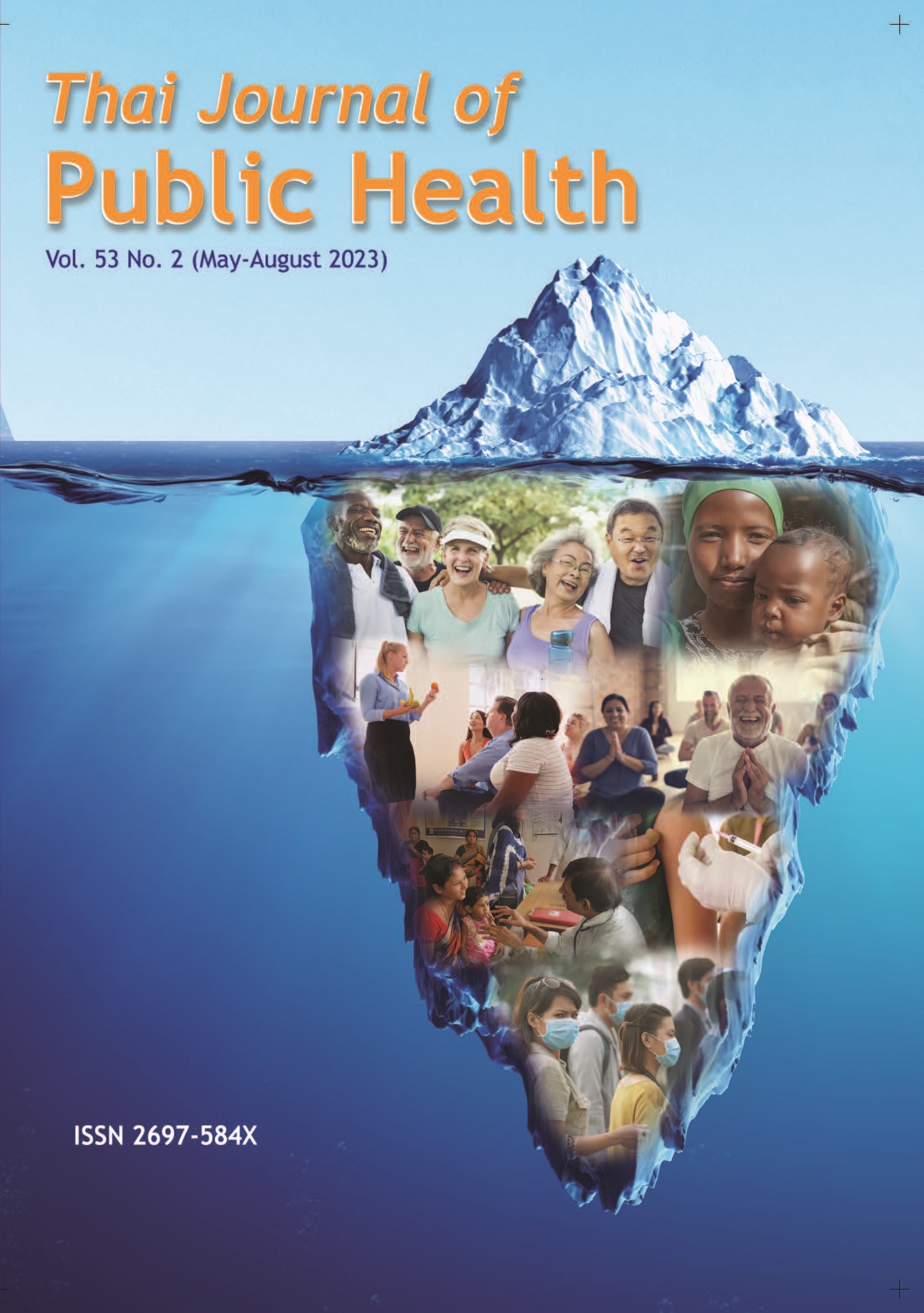Development of the High Alert Drug Management System in the Hospital for Tropical Diseases
Keywords:
High alert drug management system, Medication errors, Drug informationAbstract
In a hospital, both pharmacists and nurses are mainly responsible for medications as prescribed by the physicians to the patients. Their skills and knowledge on medication administrations are crucial and needed to ensure that the patients will receive the appropriate, correct and safe medications. However, medication errors, although may rarely occur, may lead to inappropriate and undesirable consequences. The medication errors, which are preventable, are one of the important patient safety problems. The errors can happen at every stage of the medications including prescription, transcription, preparation, dispensing, administrating and/or monitoring of the patients. Many factors are involved in the medication errors. For examples, a weak medication system, the poor work conditions such as heavy workload of the personnel and the human factors such as fatigue or lack of medication knowledge. While any inappropriate medications can potentially cause harm to the patients, the errors involving the administrations of a group of selected drugs, so called the high-alert drugs (HAD), are frequently associated with the risks and the serious injuries of the patients. Even a minimal HAD mismanagement may cause the patient to have the serious adverse drug reactions. Additionally, HAD are most often prescribed to inpatients who are already predisposed to the severe illnesses. Therefore, the hospital policy and guidelines for health personnel in the administrations of HAD to the patients needed to be clear and precise.
The Hospital for Tropical Diseases, Faculty of Tropical Medicine, is a 250-bed hospital with specialty in tropical and general medicine. Medication errors occurred in the hospital were rare but had the increasing tendency. Objectives of this study: 1) review on HAD and incidences of medical errors in the hospital; 2) develop the management system for drug monitoring and prevention of the medication errors; and 3) compare the incidences of the medical errors before and after the management system development. Methods: This research is a retrospective study involving collection of HAD usage data from the Hospital Information System installed in a personal computer and medication incidence reports from the cloud system of the hospital between October 1, 2018-September 30, 2020, before development of the drug management system and between October 1, 2020-September 30, 2022, after the development of the drug management system. The medication errors reported between the two periods were then compared. Results: There were 13 HAD items and 3 medication errors with one severe case of the patient reported during the first period. The drug management system involving HAD usage manual, HAD monitoring record form after drug administration and methods for accessing the HAD administration information were developed and implemented during the second period. It was found that 2 medical errors occurred but no severe case of the patient after the drug management system implementation. Conclusion: the HAD management system developed enables the medication administrators an easier and faster access to the HAD information than the previous system. The standard guidelines for HAD administration and monitoring system developed increase the patient safety and would reduce the incidence of medication errors in the future.
References
Institute for Safe Medication Practices. ISMP List of high-alert medications in acute care settings. Available from: https://www.ismp.org/sites/default/files/attachments/2018-08/highAlert2018-Acute-Final.pdf, accessed 5 January, 2022.
The Healthcare Accreditation Institute. Program and disease specific standards: PDSS. Available from: https://www.ha.or.th/TH/Home, accessed 7 January, 2022.
Jetnipat M. Development of high alert drug management system in Takhli Hospital under cooperation of multidisciplinary team. Health Science Journal of Thailand 2021; 3(3): 39-51. (In Thai)
Supatra M. Development of the system for the administration of high-alert drugs for patient safety. Thai Journal of Pharmacy Practice 2013; 5(1): 24-42. (In Thai)cmerp.org/types-medication-errors, accessed 21 February, 2022.
National Coordinating Council for Medication Error Reporting and Prevention. NCC MERP Index for Categorizing Medication Errors. Available from: http://www.nccmerp.org/types-medication-errors, accessed 21 February, 2022.
World Health Organization. Patient safety. Available from: https://www.who.int/news-room/fact-sheets/detail/patient-safety, accessed 15 March, 2022.
Wittich CM, Burkle CM, Lanier WL. Medication errors: an overview for clinicians. Mayo Clin Proc 2014; 89(8): 1116-25. DOI: 10.1016/j.mayocp.2014.05.007
Tariq RA, Vashisht R, Sinha A, Scherbak Y. Medication dispensing errors and prevention. 2022. In: StatPearls [Internet]. Treasure Island (FL): StatPearls Publishing. Available from: https://www.ncbi.nlm.nih.gov/books/NBK519065/, accessed 10 July, 2022.
Piangpen C. Development of High-Alert Drug Monitoring System in Srinagarind Hospital. Srinagarind Medical Journal 2015; 30(1): 46-56. (In Thai)
Surapee E, Orawan S, Maytharat Y. Development of a nursing practice guidelines for high alert drug administration, Samut-Sakhon Hospital. Journal of Nursing Division 2020; 47(1): 25-38. (In Thai)
Kitiphon K. Medication errors. Public Health Policy & Laws Journal 2018; 4(2): 251-265. (In Thai)
Wimonluk R, Nungruthai S, Cheardchai S. Assessment of Adherence to the Practice Guideline of High Alert Drugs for Inpatient Department: Case Study at a Community Hospital in Central Region. Isan Journal of Pharmaceutical Sciences 2018; 14(4):18-28 (In Thai)
Sirirat W, Boonroun C, Chintana W. Nursing System Development for Risk of Medication Errors Protocol on Participation of Nursing Model for Prevention Medication Errors Rate. Journal of nurses’ association of Thailand, north-eastern division 2016; 31(2): 25-35. (In Thai)
Downloads
Published
Issue
Section
License

This work is licensed under a Creative Commons Attribution-NonCommercial-NoDerivatives 4.0 International License.
Creative Commons License CC-BY-ND


